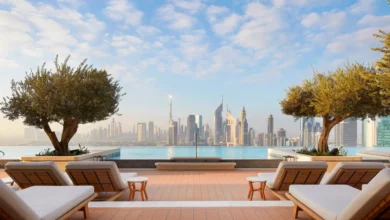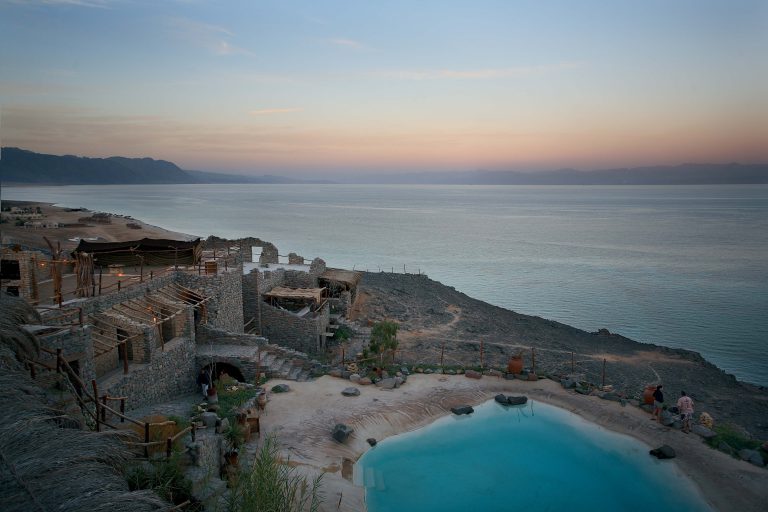
Atop a rocky hill in the Gulf of Aqaba perched a young architect, listening to a Bedouin legend of a magician called “Zaman” who, after falling in love with a princess, was exiled to live alone. The magician kept himself busy by building a fort overlooking the bay, waiting for his lover.
The young architect stood on the hill, hearing the story, and slowly fell in love with the place. He decided to live on the hill, and build there a castle that blended the spirit of the past with modernity and name it after the magician Zaman.
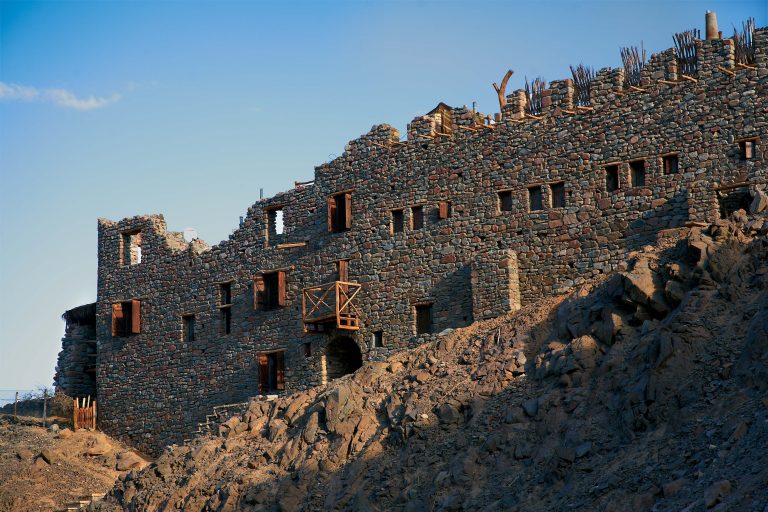
Castle Zaman was built by engineer Hany Rushdie on a hill rising 35 meters above sea level, 25 kilometers from the city of Nuweiba in South Sinai. At first glance, it is guaranteed to steal your heart.
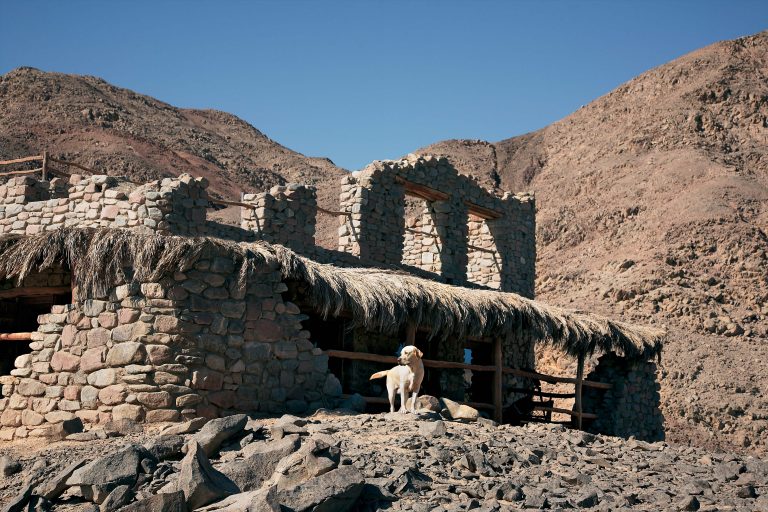
The castle is a beautiful oasis that embraces the golden sands, the Sinai mountains, and Red Sea waters to create a vibrant real-life painting.
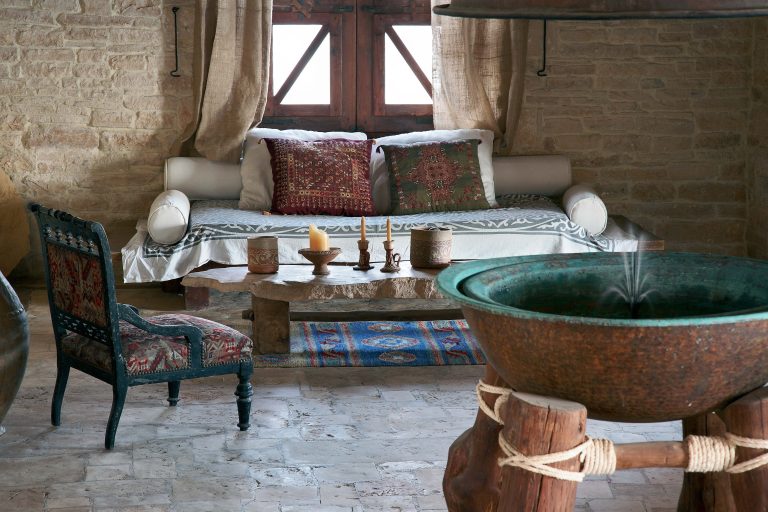
The interior design of the castle is no less beautiful, as the furniture is made of natural wood. The castle’s entrance and main hall feature traditional kilim carpets, pillows, and fabric curtains. In the center is a copper fountain held up by tree roots.
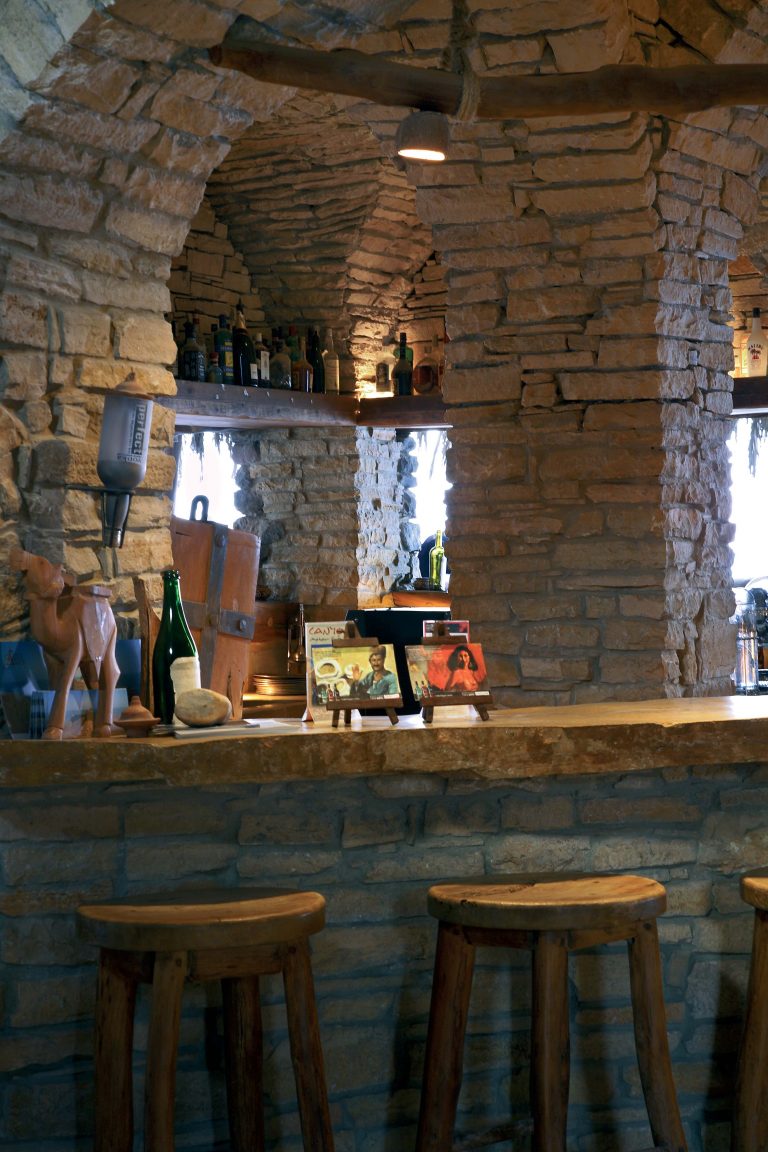
The castle includes a bar equipped with modern sound system that opens to a balcony overlooking the beachfront.
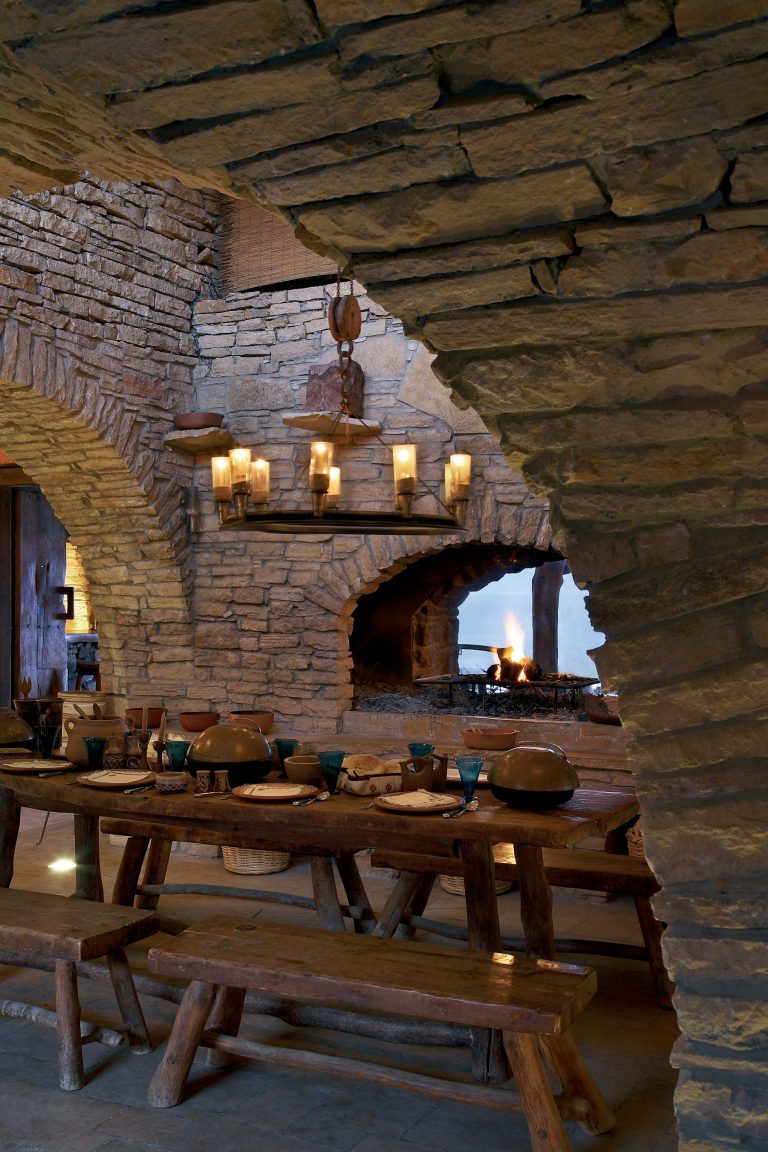
A candle-lit dining hall features tables and chairs made of natural wood and utensils made from clay. Food is slow-cooked in the fireplace for hours, creating decadent dishes that can only be found at the castle.
Cooking food has a special philosophy at Castle Zaman, and resembles the dishes created in Italy in the late 1980’s in protest against the spread of fast-food restaurants. The meals can be enjoyed in the dining room or outside on the balcony and the castle’s front yard.
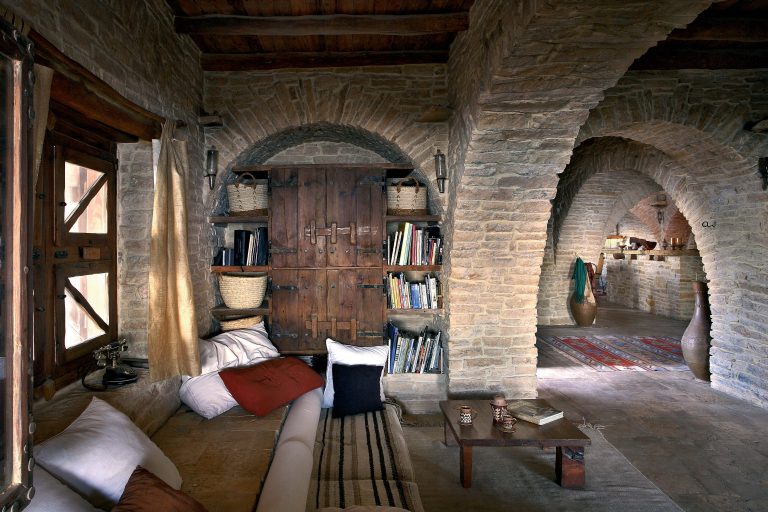
The castle also has a reading hall and small library, where guests can lose themselves in a book for hours.
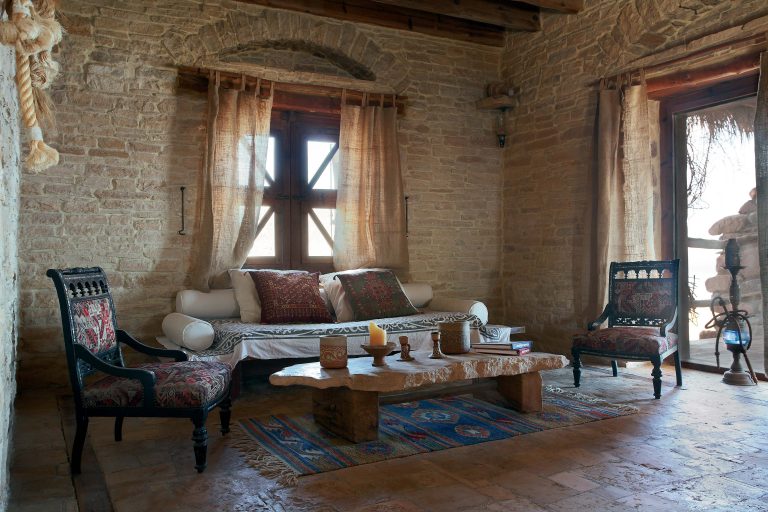
An Islamic-style sitting room with windows overlooking the Red Sea features a Bedouin sofa, a kilim rug, candle holders, and a stone coffee table with natural wood bases.
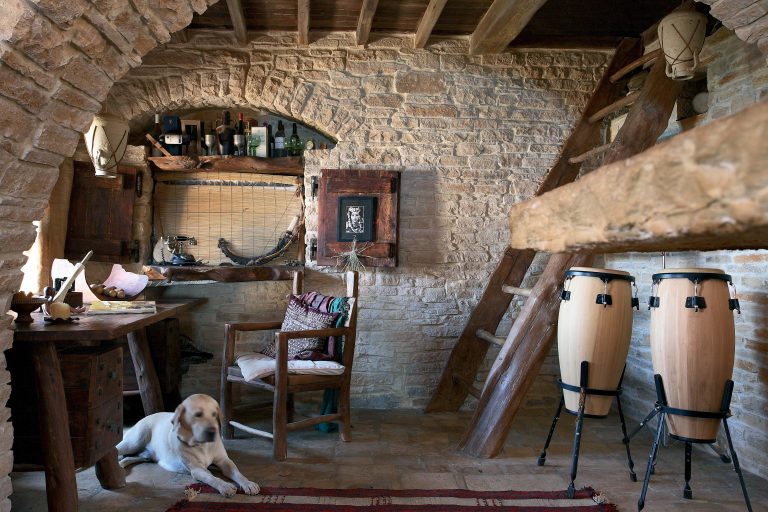
Rushdie, the castle’s owner, has a two-room suite: the lower room consisting of a wooden office riddled with charming artifacts, including a Bedouin dagger and an old telephone dating back to the early twentieth century.
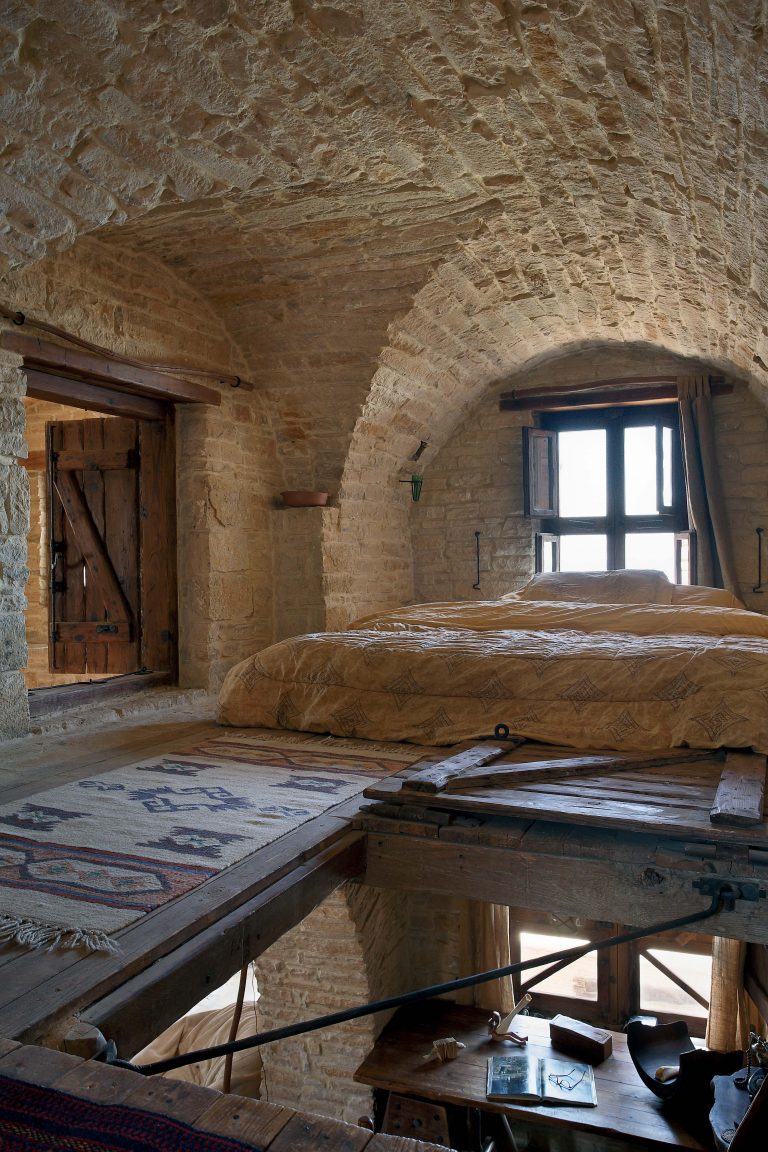
The stairs lead you through a hole in the wooden ceiling into a simple bedroom with an enormous bed under a window overlooking the sea.
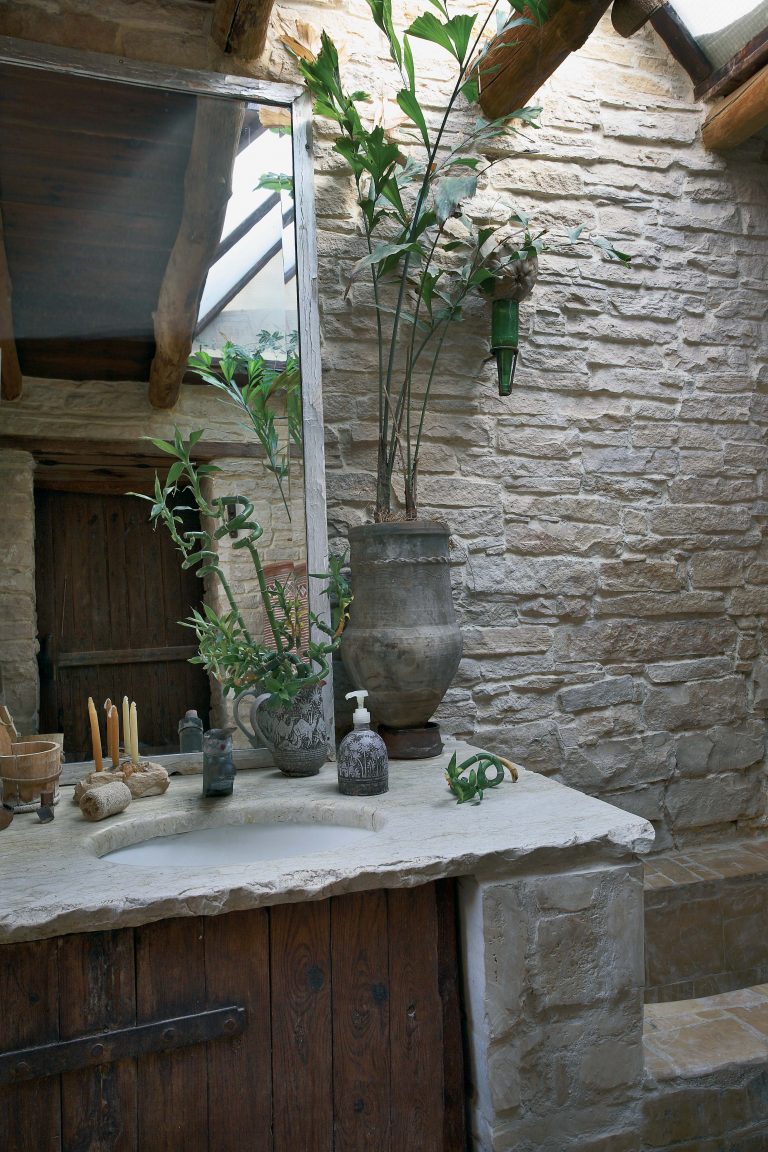
The castle’s bathrooms mix modernity with history, featuring a simple modern metal faucet with a stone basin sink and a candlelit bathtub made from limestone.
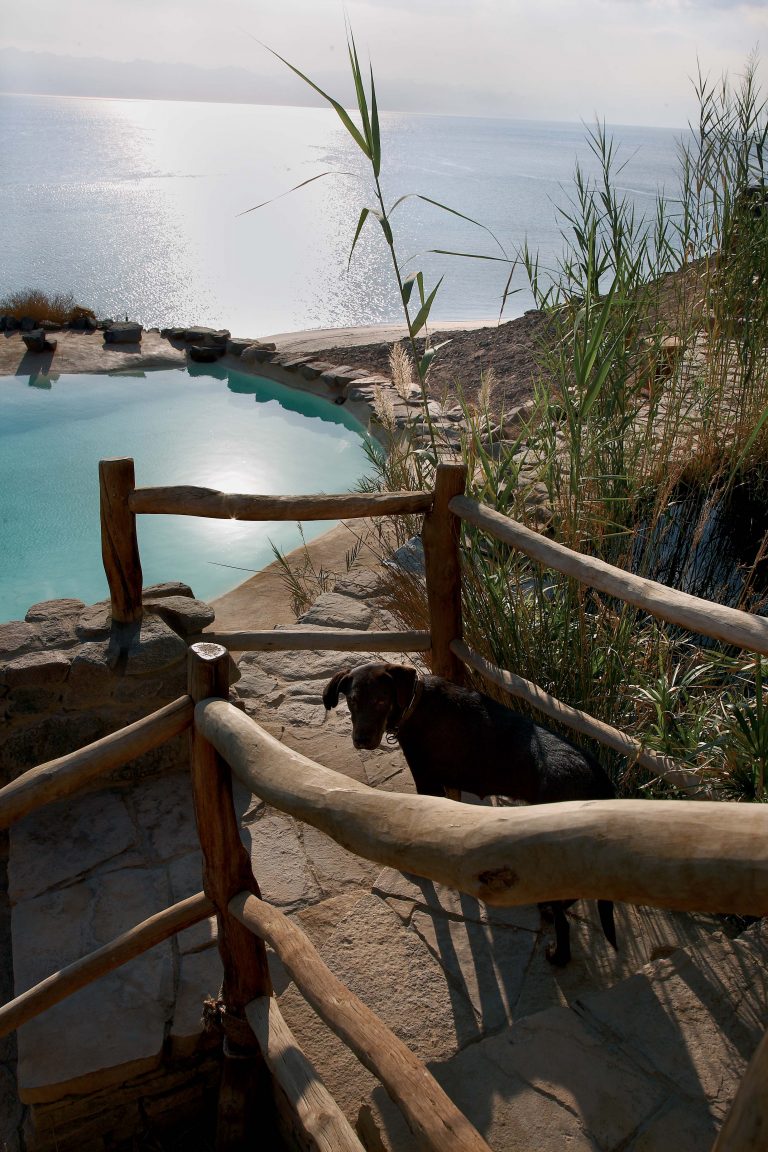
The minimalist balcony has handrails and pergolas made from natural wooden logs mixed with sticks and palm branches.
The castle contains a swimming pool shaped like a lake, whose waters match the color of the sea.
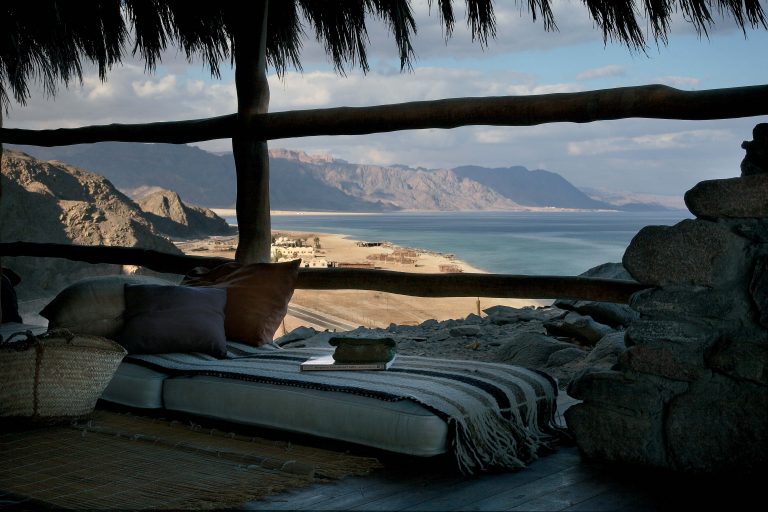
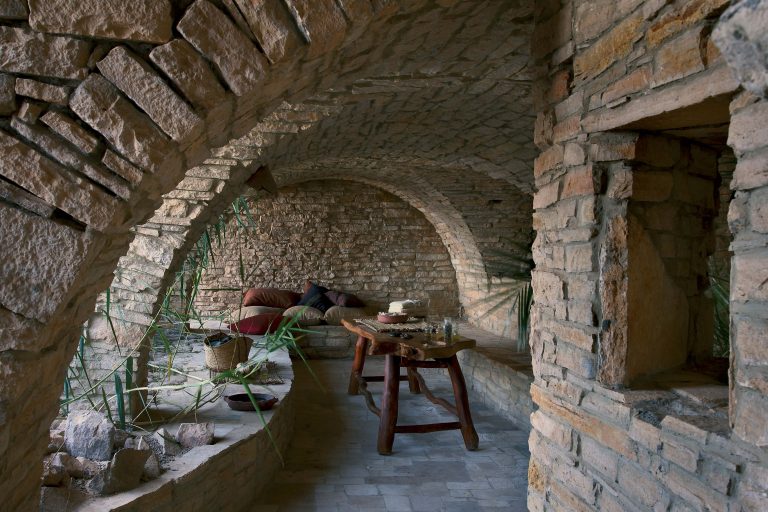
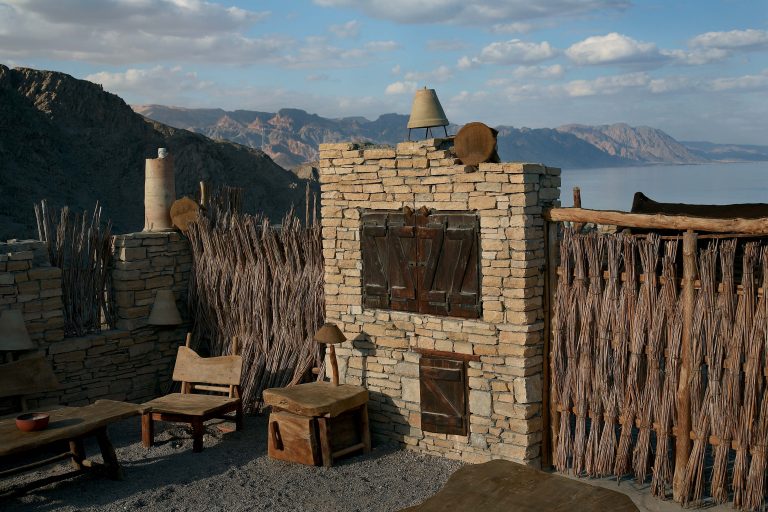
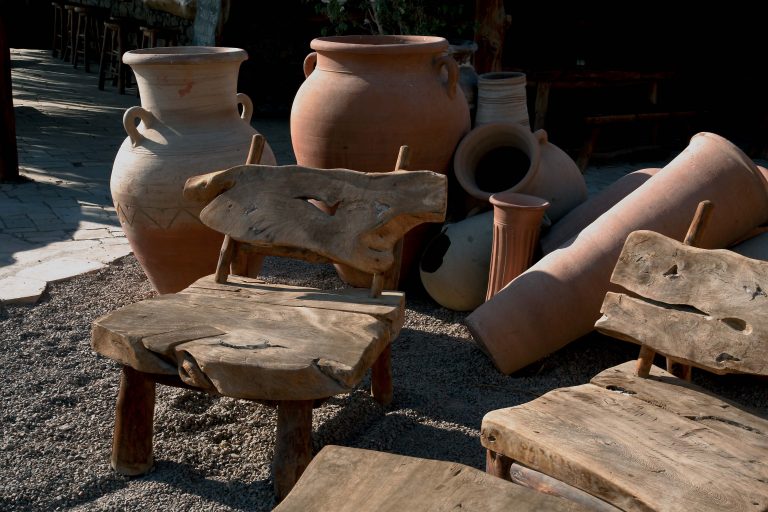
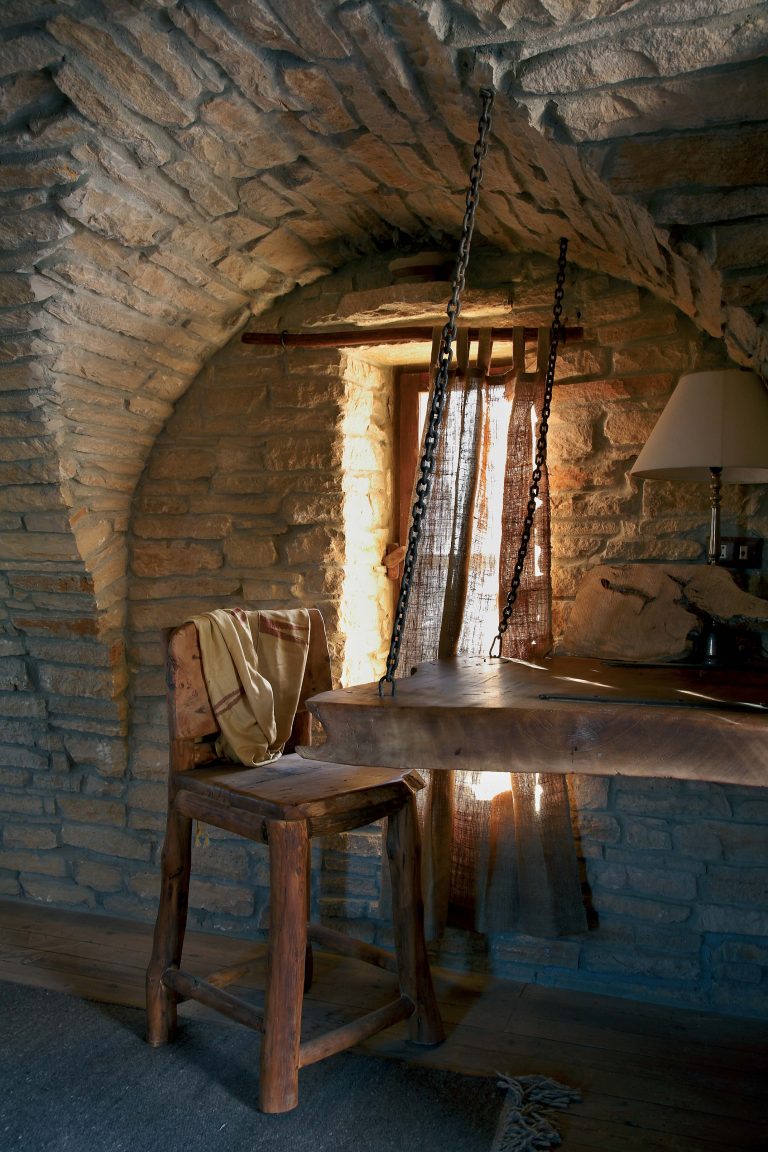
Finally, there are secret passageways below that castle that lead to its so-called treasure room.
In order to enter the basement, you have to grab an iron chain that opens a wooden door and walk through a dimly-lit tunnel decorated with Bedouin heritage crafts.
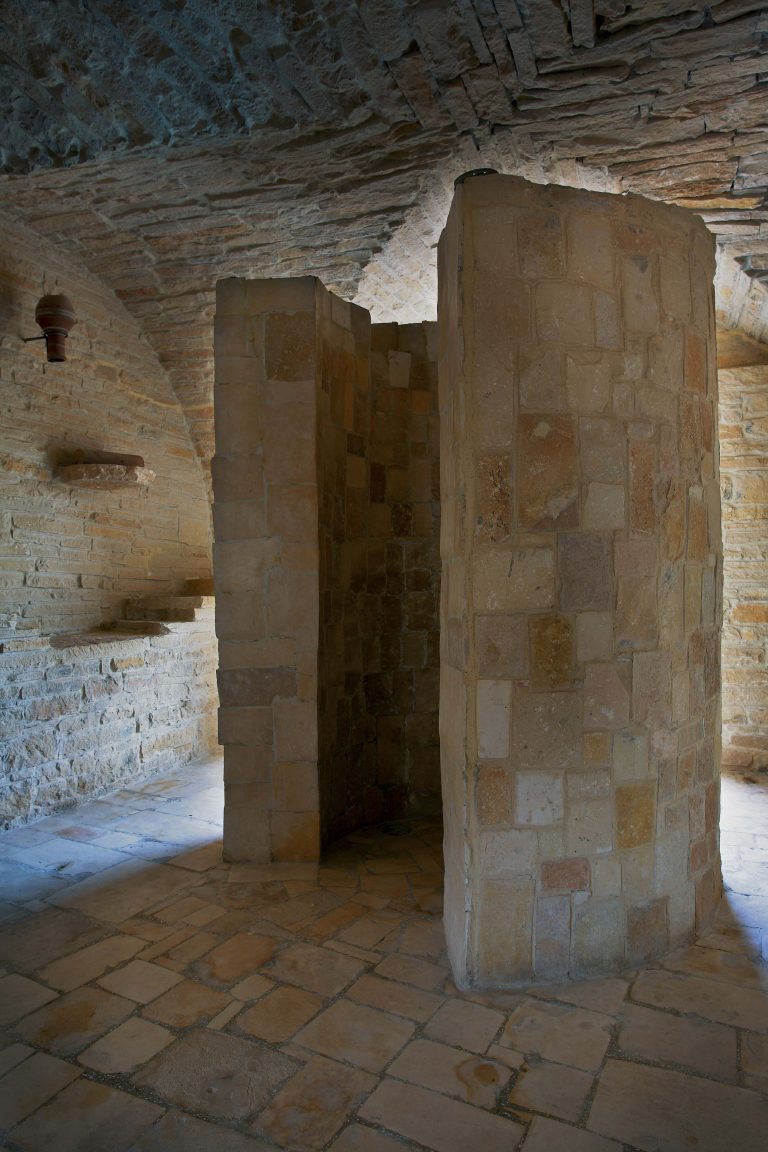
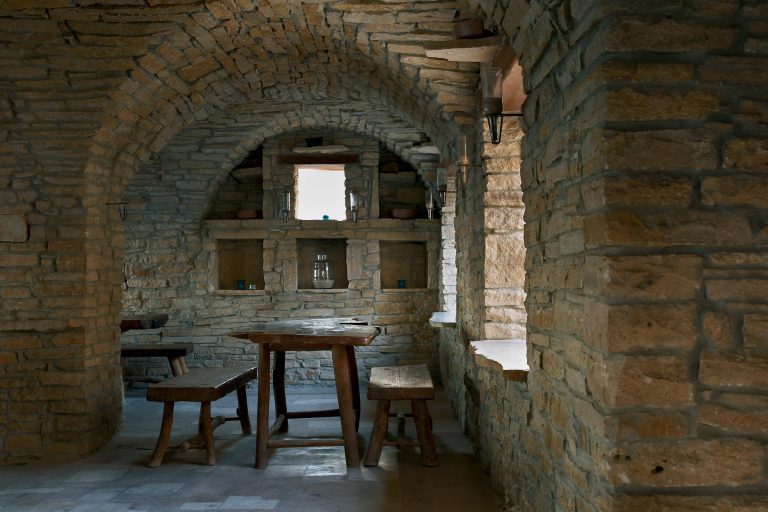
Edited translation from Al-Masry Al-Youm




